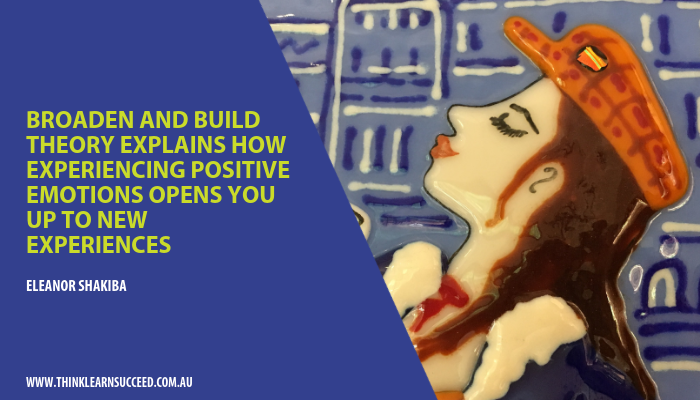 With ‘positive thinking’ being constantly touted in pop psychology, do you find yourself feeling guilty about your negative emotions? Don’t be. Your perceived ‘negative’ or uncomfortable feelings are just as important as the positive ones in helping you evaluate your experiences and make sense out of life’s complexity.
With ‘positive thinking’ being constantly touted in pop psychology, do you find yourself feeling guilty about your negative emotions? Don’t be. Your perceived ‘negative’ or uncomfortable feelings are just as important as the positive ones in helping you evaluate your experiences and make sense out of life’s complexity.
Uncomfortable emotions are often associated with a tendency to act in self-preserving ways. When you’re afraid, your tendency is to escape; when you’re angry, your tendency is to attack. In dangerous situations, this can help you survive. But here’s an interesting question: what role do positive emotions play in human survival?
Barbara Frederickson, a key researcher in the field of positive psychology, developed the ‘broaden and build’ theory, which explains how experiencing positive emotions opens you up to new experiences.
There are four key points that underpin Frederickson’s model:
1. Unpleasant emotions help you survive, but they also limit your thought-action repertoire
So-called negative emotions shrink the scope of your attention, cognition and action. They prevent you from noticing things, learning and thinking clearly.
2. Positive emotions broaden your ability to think and act in new ways
When you’re feeling good, you can think more clearly. This is what Frederickson means by ‘broadening’ your thinking skills.
3. Positive emotions help you build resources for dealing with tough times
When you’re happy, you learn better. Emotions themselves might be fleeting, but the resources you build from them are long-lasting.
4. Feeling good might contribute to your longevity
In the 1930’s, a group of novice Catholic nuns were asked to write short essays about their lives. More than sixty years later, those essays were analysed by psychologists at the University of Kentucky. Their findings were intriguing: the nuns who expressed positive feelings most often lived up to ten years longer than their counterparts.
That’s a compelling reason to build on positive emotional states, isn’t it? Frederickson claims there are ten core positive emotions: joy, serenity, amusement, awe, pride, gratitude, interest, inspiration, hope and love. I call these the Big Ten. Imagine how your life would change if you experienced The Big Ten every day. Chances are, it would change for the better.
About the author of this article
Eleanor Shakiba is a positive psychology trainer and coach. She consults to a range of sectors – including higher education, health, finance and local government – in the development of social and emotional intelligence at work. Find out how Eleanor can help you and your team.